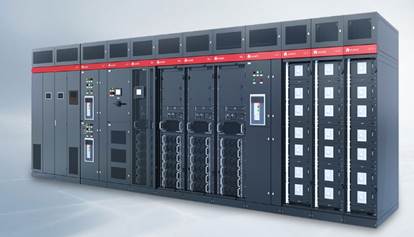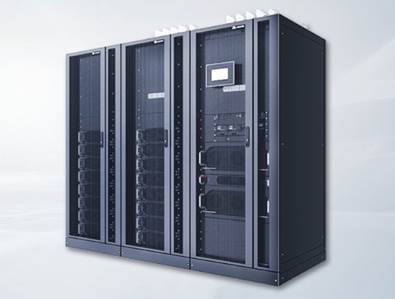Selecting
the right data center provider is one of the most critical technology decisions
your business will make. The quality of your data center facilities directly
impacts application performance, data security, and ultimately customer
satisfaction. A well-chosen provider becomes a strategic partner that supports
your growth, while a poor choice can lead to costly downtime, security
breaches, and scalability limitations. In this article, we'll guide you through
the key evaluation criteria for selecting a data center provider that delivers
reliability, security, and performance - with particular attention to
industry-leading solutions like Huawei's comprehensive data center offerings.
Assessing Your Business Requirements
Before
evaluating providers, clearly define your technical needs and business
objectives. Consider your current and projected data storage requirements,
application performance needs, compliance obligations, and growth plans. A
financial services firm handling sensitive transactions will prioritize
different features than a media streaming company focused on content delivery.
Document must-have features versus nice-to-have capabilities, and establish
your budget parameters. This foundation will help you objectively compare
providers and avoid overpaying for unnecessary services or underestimating
future needs.
Evaluating Infrastructure and Reliability
Tier Certification and Uptime Guarantees
Look
for providers with Tier III or IV certified data center facilities, indicating robust redundant components and maintenance
capabilities. Tier certification from the Uptime Institute provides an
objective measure of infrastructure reliability. Examine the provider's
historical uptime performance and service level agreements (SLAs) - premium
providers like Huawei guarantee 99.995% uptime or better. Understand what
compensation they offer for downtime incidents, and whether their SLA covers
both network and power availability. The most reliable providers implement
multiple layers of redundancy across all critical systems to minimize single
points of failure.
Power Infrastructure and Redundancy
High-quality
data center facilities employ advanced power solutions like Huawei's PowerPOD,
which integrates medium-voltage transformation, distribution, and
uninterruptible power supply into a single ultra-efficient system. Look for N+1
or 2N redundant power architectures, with automatic failover capabilities. The
best providers utilize efficient modular UPS systems like Huawei's UPS5000
series. Verify the provider's backup power runtime meets your requirements,
including generator fuel reserves and battery capacity for extended outages.

Cooling Systems and Environmental Controls
Modern
data center facilities require precision cooling systems that maintain optimal
temperature and humidity while minimizing energy use. Huawei's indirect
evaporative cooling technology demonstrates how innovative approaches can
dramatically improve efficiency compared to traditional CRAC units. Evaluate
the provider's cooling redundancy and their ability to handle high-density
racks. Look for hot/cold aisle containment systems and advanced monitoring that
prevents thermal hotspots. The most sophisticated facilities use AI-driven
cooling optimization that adjusts in real-time to changing loads and external
weather conditions, reducing energy waste while ensuring equipment reliability.
Security and Compliance Considerations
Physical Security Measures
Top-tier
data center facilities implement military-grade physical security including
biometric access controls, 24/7 surveillance, mantraps, and security personnel.
Huawei's data centers feature multi-layer access authorization with strict
visitor protocols and audit trails. Look for providers that exceed standard
security practices with features like bullet-resistant walls, seismic bracing,
and anti-tailgating systems. The facility location should mitigate risks from
natural disasters, civil unrest, or industrial accidents. On-site security
operations centers with trained personnel provide an additional layer of
protection beyond automated systems.
Cybersecurity Protections
Beyond
physical security, evaluate the provider's network security infrastructure.
Premium facilities like those operated by Huawei deploy next-generation
firewalls, intrusion prevention systems, and distributed denial-of-service
(DDoS) protection. Look for providers that offer encrypted cross-connects and
private network options. Their security operations should include continuous
vulnerability scanning, threat intelligence monitoring, and incident response
capabilities. The best providers conduct regular penetration testing and
security audits, with transparent reporting available to clients upon request.
Compliance Certifications (SOC 2, ISO 27001, etc.)
Verify
the provider maintains relevant compliance certifications for your industry.
Common standards include SOC 2 Type II for financial data, ISO 27001 for
information security, and HIPAA for healthcare information. Huawei's data
centers meet stringent international standards, with certifications regularly
audited by independent third parties. These certifications demonstrate the
provider follows documented security processes rather than ad-hoc practices. If
you operate in regulated industries like finance or healthcare, ensure the
provider understands your specific compliance requirements and can provide
supporting documentation for audits.
Connectivity and Network Performance
Carrier Neutrality and Peering Options
Quality
data center facilities offer carrier-neutral environments with multiple fiber
providers available. This ensures competitive pricing and redundancy if one
carrier experiences issues. Huawei's facilities provide extensive peering
options with major networks and cloud providers, reducing latency and improving
performance. Look for providers with robust internet exchanges on-site and
diverse fiber entry paths to the building. The best providers facilitate easy
cross-connects between your infrastructure and cloud services, carriers, or
business partners within the data center.
Network Latency and Bandwidth Availability
Evaluate
the provider's network architecture and connectivity to your key markets.
Low-latency fiber routes and ample bandwidth capacity are essential for
performance-sensitive applications. Huawei's global network of data center
facilities offers optimized routing to major business hubs worldwide. Inquire
about typical latency to your user bases and available bandwidth options.
Premium providers can scale to 100G+ connections as your needs grow, with
flexible billing options that match your usage patterns rather than locking you
into fixed expensive contracts.
Cloud On-Ramps and Interconnection Services
Modern
businesses need seamless connectivity between their data center infrastructure
and cloud platforms. Leading providers like Huawei offer direct, private
connections to major cloud providers (AWS, Azure, Google Cloud) with consistent
performance superior to public internet links. These cloud on-ramps provide
security benefits by keeping traffic off the public internet while reducing
latency and bandwidth costs. Evaluate the provider's ecosystem of network and
cloud partners, as well as the flexibility to add new connections as your cloud
strategy evolves.
Service and Support Evaluation
SLAs and Service Guarantees
Carefully
review the provider's service level agreements, which should cover power,
network, and cooling availability. Huawei's premium SLAs guarantee rapid
response times for issues and financial penalties for missed targets. Look for
clear definitions of how availability is measured and reported. The best
providers offer real-time status portals showing current system performance and
historical uptime. Ensure the SLA includes both incident response times and
resolution time commitments, with escalating remedies for prolonged outages.
Technical Support Availability
24/7/365
technical support with local language capabilities is essential for
mission-critical operations. Huawei's data centers provide multilingual support
staffed by certified engineers rather than general customer service agents.
Evaluate the provider's support channels (phone, email, chat), average response
times, and escalation procedures. On-site smart hands services can be valuable
if you need occasional physical assistance with equipment. The most responsive
providers assign dedicated account managers who understand your specific
configuration and requirements.
Disaster Recovery and Business Continuity Services
Comprehensive
data center facilities offer built-in disaster recovery solutions, including
geographically redundant sites and automated failover capabilities. Huawei's solutions
include synchronous data replication between facilities with recovery point
objectives (RPO) near zero. Evaluate the provider's own business continuity
plans - how they protect against regional disasters and maintain operations
during crises. Look for providers with multiple diverse network paths and
backup systems that exceed standard industry practices. Their disaster recovery
documentation should be detailed and regularly tested.
Cost and Contract Considerations
While
price shouldn't be the sole deciding factor, understanding the total cost of
ownership is essential. Evaluate both upfront costs and long-term operational
expenses. Huawei's efficient data center designs deliver lower power and
cooling costs over time, offsetting initial investments. Consider contract
flexibility - the best providers offer scalable solutions that let you pay for
what you use today while easily expanding tomorrow. Be wary of providers that
lock you into long-term contracts without growth flexibility or that charge
excessive fees for additional services. Transparent pricing models with
predictable costs help avoid budget surprises.
Making the Final Decision
Creating a Shortlist and Conducting Site Visits
After
initial research, narrow your options to 3-5 providers that meet your core
requirements. Schedule tours of their data center facilities to evaluate
operations firsthand. During visits, observe cleanliness, organization, and
staff professionalism. Huawei's showcase facilities demonstrate
industry-leading standards in layout, monitoring, and maintenance practices.
Ask to see the mechanical and electrical infrastructure rather than just the
colocation space. Pay attention to detail - well-maintained facilities
typically indicate overall operational excellence.
Checking References and Customer Reviews
Request
customer references from businesses similar to yours in size and industry. Ask
about their experiences with reliability, support responsiveness, and problem
resolution. Research independent reviews and industry analyst reports - Huawei
consistently receives top rankings for data center innovation and performance.
Look for patterns in feedback rather than isolated complaints. The best
providers will have long-term clients willing to vouch for their services.
Consider reaching out to current customers through professional networks for
unfiltered perspectives.
Negotiation Strategies and Best Practices
Approach
negotiations with clear priorities - know which terms are non-negotiable and
where you can be flexible. Huawei's account teams work collaboratively to
structure solutions that meet both technical and business requirements.
Consider starting with a shorter-term contract or pilot deployment to evaluate
service quality before long-term commitment. Negotiate favorable terms for
future expansion - the best providers reward customer growth with improved
pricing tiers. Ensure all verbal agreements are documented in final contracts,
with clear exit clauses if service levels aren't met.

Conclusion
Choosing
the right data center provider is a strategic decision that impacts your
business for years to come. By thoroughly evaluating infrastructure quality,
security measures, network capabilities, and service models, you can select a
partner that supports both current operations and future growth. Huawei's
comprehensive data center solutions stand out for their innovative power
efficiency, intelligent management systems, and global reliability. Their
PowerPOD architecture and UPS5000 series demonstrate the technical excellence
that separates premium providers from basic facilities. The ideal provider
combines robust physical infrastructure with responsive support and flexible
commercial terms - becoming a true extension of your IT team rather than just a
vendor. With careful selection using these criteria, your business can secure
data center services that deliver performance, protection, and peace of mind
well into the future.
